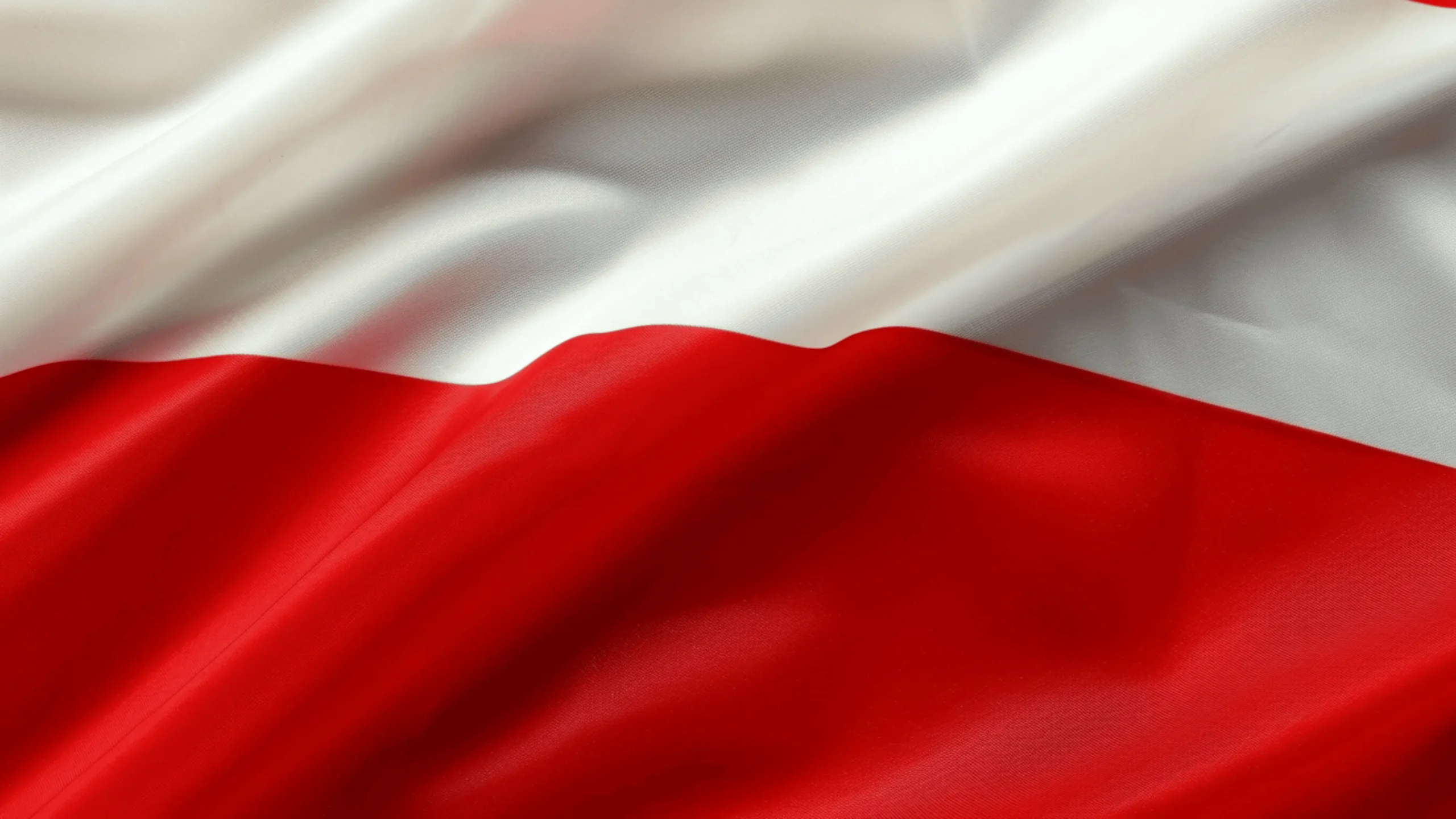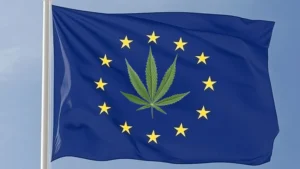You may wonder is CBD oil legal in Poland – CBD is legal in Poland without legislated restrictions. The only requirement is that CBD oil must contain less than 0.3% THC. Poland has a strong CBD oil industry, supplying big part of the European market. In recent years, Poland has witnessed a significant move in its attitude towards CBD oil and other CBD products, reflecting broader changes within the whole European Union.
Initially conservative, the Polish market has gently opened up, especially following the legalization of medical cannabis in 2017. The European Cannabis Report by Prohibition Partners revealed that within the first nine months of 2021, Polish physicians wrote 28,076 prescriptions for medical cannabis, serving 9,261 patients. This positions Poland as one of Europe’s largest markets for medical cannabis.
The acceptance and interest in CBD oil are growing rapidly in Poland as well. If you are an entrepreneur looking to enter or expand within the CBD market in Poland, understanding the laws is crucial as Poland navigates the complex waters of EU regulations, which aim for a united policy but often result in varied regulations across member states.
This article serves as an essential guide for anyone interested in the legal status of CBD oil in Poland, providing useful insights into what is permissible in the rapidly growing Polish CBD market. Whether you’re considering purchasing CBD products or establishing a CBD business, staying informed about the current legal environment and forthcoming changes is essential for success in Poland’s CBD market.
Is it legal to sell CBD in Poland
Poland presents a promising opportunity for the CBD market, particularly with the legal sale of CBD oil and other CBD products. Poland complies to many of the European Union’s regulations, although local rules, such as registration requirements with The Polish Main Sanitary Inspectorate, might apply. Selling CBD oil is completely legal in Poland. Recent decisions by Polish courts (referencing court case V SA/Wa 5258/21) seem to have even relaxed the rules for marketing hemp CBD products. The rulings indicate that while CBD extracts are classified as ‘novel food’ and must go through appropriate authorization processes, cannabis plants (Cannabis sativa L.) are not considered in the same category. Consequently, food products that include cannabis plants are exempt from these authorization procedures. It’s also important to note, as it is mentioned in this 2024 report, that advertising that is misleading or can lead to some sort of misrepresentation of CBD products is prohibited in Poland.

CBD and hemp basics: what you need to know in Poland
It is crucial to understand the difference between marijuana and hemp, both of which are varieties of the Cannabis Sativa plant. In Poland, any Cannabis Sativa plant with THC (the psychoactive compound) levels above 0.3% is classified as marijuana and is illegal (before 7 May 2022 it was 0,2%, but then the Polish Act on counteracting drug addiction was amended). Conversely, Cannabis Sativa with less than 0.3% THC is categorized as hemp and is legal, a regulation consistent across most European Union countries. Both hemp and marijuana are rich in cannabinoids, including CBD (cannabidiol), which is of particular interest in this context.
Hemp cultivation is not new to Poland as well – the country has a long history of using industrial hemp for producing various products such as clothing, food, etc. This rich heritage and the evolving laws make Poland a significant player in the European CBD market, promoting a legal environment where CBD oil and other CBD products can be sold.
History of hemp in Poland
In Europe, hemp traces back to 1400 BC, introduced by Scythian tribes. In Poland, hemp’s earliest uses were for fabric production in pre-Slavic times. Polish literature first acknowledged hemp through Szymon Syreński in the late 16th century. By the 18th century, Krzysztof Kluka highlighted hemp’s pain-relieving, marking an early recognition of the hemp’s medical potential in Poland. This historical context highlights the long-lasting relationship between Poland and hemp, now legally integrated in modern CBD oil regulations.
19th and 20th century
Hemp was broadly cultivated in Poland at the beginning of the 20th century, but its agricultural significance declined due to technological advances and war impacts. During foreign invasions, many hemp crops were destroyed, leading to unprofitability in the interwar period. In 1930, hemp was declared harmful and was banned in Poland. Although World War II temporarily lifted this ban, it was brought back post-war.
1980s
During communism in Poland, hemp was initially permitted for fiber production, leading to a 1985 ban on cultivation without specific industrial approval. This regulation nearly erased hemp production in Poland. Reflecting on this uncertain legal history raises an important question in today’s context: is CBD oil legal in Poland now, given its complex past with hemp regulations?
The legality of CBD in Poland
In 2025’s Poland, the legality of CBD oil and other CBD products is aligned with some flexible regulations. Poland adheres to the arrangement that CBD products derived from hemp containing less than 0.3% THC are legal. This ensures that while CBD oil is permissible, it must not possess more THC. The sale and production of CBD oil in Poland must meet specific regulatory requirements to ensure the safety and legality of the CBD products. As the CBD market grows, staying informed about these regulations is essential for anyone involved in the CBD industry in Poland.
Hemp legality by species
In Poland, hemp varieties are differentiated between industrial hemp (Cannabis sativa L), which contains THC levels of 0.3% or lower and consists mostly of CBD, and Cannabis indica Lam., known as Indian cannabis, which is illegal due to its high THC content. On the other hand, these cannabis species can only be accessed through a medical prescription since November 1, 2017.
Is CBD (cannabidiol) legal in Poland?
Yes, CBD oil is legal in Poland, but the situation can be complex when delving into the specifics. To operate legally, businesses must adhere to Poland’s regulations, which include securing the requisite permits for hemp cultivation or obtaining necessary legal documentation for operating a CBD business. In Poland, the legal threshold for THC in CBD products made from industrial hemp is set at 0.3%. Beyond this level, the plant is classified as marijuana and remains illegal.
Types of CBD related businesses in Poland
CBD production in Poland consists of these 4 main fields:
| Farmers that cultivate hemp in Poland, playing an important role as the primary source of raw material for CBD products. |
| The wholesale of CBD, which deals with the distribution of bulk hemp to processors. |
| Processing of hemp to create a variety of hemp and CBD products, where the raw hemp undergoes extraction and refinement to CBD oil. |
| Retail sale of CBD products, where the finished CBD products reach consumers through various online and offline channels. |
Each of these fields presents unique opportunities and challenges for businesses. Before starting a CBD business in Poland, it is crucial to understand the legal landscape – this ensures the legality of operations across all stages, from hemp cultivation to sales of CBD products.
Hemp cultivation in Poland
While hemp cultivation is legally permitted in Poland, it requires specific authorization from Polish authorities. This permit system highlights that growing hemp is legal only when aimed for sectors such as textiles, chemicals, cellulose and paper, food products, cosmetics, pharmaceuticals, building materials, and for seed production. These regulations highlight a broad spectrum of potential legal uses for hemp in Poland. However, it is important to note that personal cultivation of hemp without proper permits is strictly illegal.
Compliance with these guidelines ensures the legality of hemp cultivation and CBD oil production, aligning with both national laws and broader EU regulations.

Wholesale of CBD
The wholesale of legal CBD products in Poland also falls under severe regulatory requirements, including the necessity for a government-issued permit. If you are looking to engage in the wholesale of legal CBD products, you must demonstrate established contracts with farmers, specifying quantities of the crop to be purchased. This step ensures that the supply chain for CBD products remains transparent and legally compliant, reflecting the controlled nature of CBD-based businesses within the country.
Compliance with these regulations is important for businesses to operate legally and effectively within the Polish market. Aspiring CBD oil wholesalers must navigate these nuances carefully to secure their position in the CBD market, underscoring the importance of thorough preparation and compliance with Polish CBD laws. This structured approach ensures that the distribution of CBD oil and other CBD products aligns with both national and EU standards, maintaining legality and fostering industry growth in Poland.
Hemp and CBD processing
In Poland, transforming hemp into various CBD products requires partnering with licensed individuals, ensuring that every step of the production process complies with legal standards. For those exploring the CBD oil market or other CBD derived products, it is crucial to align operations with the stringent regulations that control different product categories.
Notably, products intended for the food and pharmaceutical sectors are subject to more rigorous controls compared to those used in the textile industry, such as clothing. Compliance with these regulations is essential for maintaining the legality of your business activities within Poland. This adherence not only safeguards your operations but also ensures consumer trust in the safety and quality of your CBD products.
Retail sale of CBD products
Selling CBD products in Poland, particularly food items, requires adherence to specific regulatory conditions to ensure transparency and safety for consumers. For entrepreneurs in the CBD oil market, it is imperative to label products clearly and accurately, enabling consumers to identify them as CBD-based without confusion. Additionally, these products must comply with stringent sanitary regulations to meet the legal standards set by Polish law. This meticulous attention to detail in labeling and compliance is crucial for maintaining the legality of selling CBD food products in Poland. By following these guidelines, businesses can operate within the legal framework, providing consumers with safe and properly identified CBD products. You should note the obligation to register the business in Poland as a sole proprietorship or civil partnership in the Central Registration and Information on Business or, if one of the other forms of activity is selected, the company should be registered in the National Court Register.
New update
Poland’s market is contributing notably to the European CBD market growth, driven by increasing consumer awareness and product availability. The Poland’s CBD market is expected to grow by 3.56% annually to 2029, resulting in a market volume of approximately $160.60 million by 2029.

Final thoughts on CBD laws in Poland
So, is CBD oil legal in Poland? To sum up the insights from our exploration, yes, CBD oil is legal in Poland, provided it is derived from hemp containing less than 0.3% THC. This low THC content ensures that the CBD products align with Polish legal standards. For businesses engaged in the cultivation, sale, or processing of hemp, securing the required permits from Polish authorities is essential.
While recreational cannabis remains illegal due to its higher THC levels, Poland has shown progressive attitudes towards medical cannabis, reflecting a broader trend of acceptance and regulated use.
This evolving landscape offers significant opportunities for entrepreneurs interested in the CBD market in Poland. By adhering to the legal frameworks and ensuring transparency in product content and usage, businesses can successfully navigate the CBD market. We hope that this article clarified the legal context of CBD in Poland and encouraged informed participation in the growing CBD industry.
Featured Articles

Blog Home
No Content



